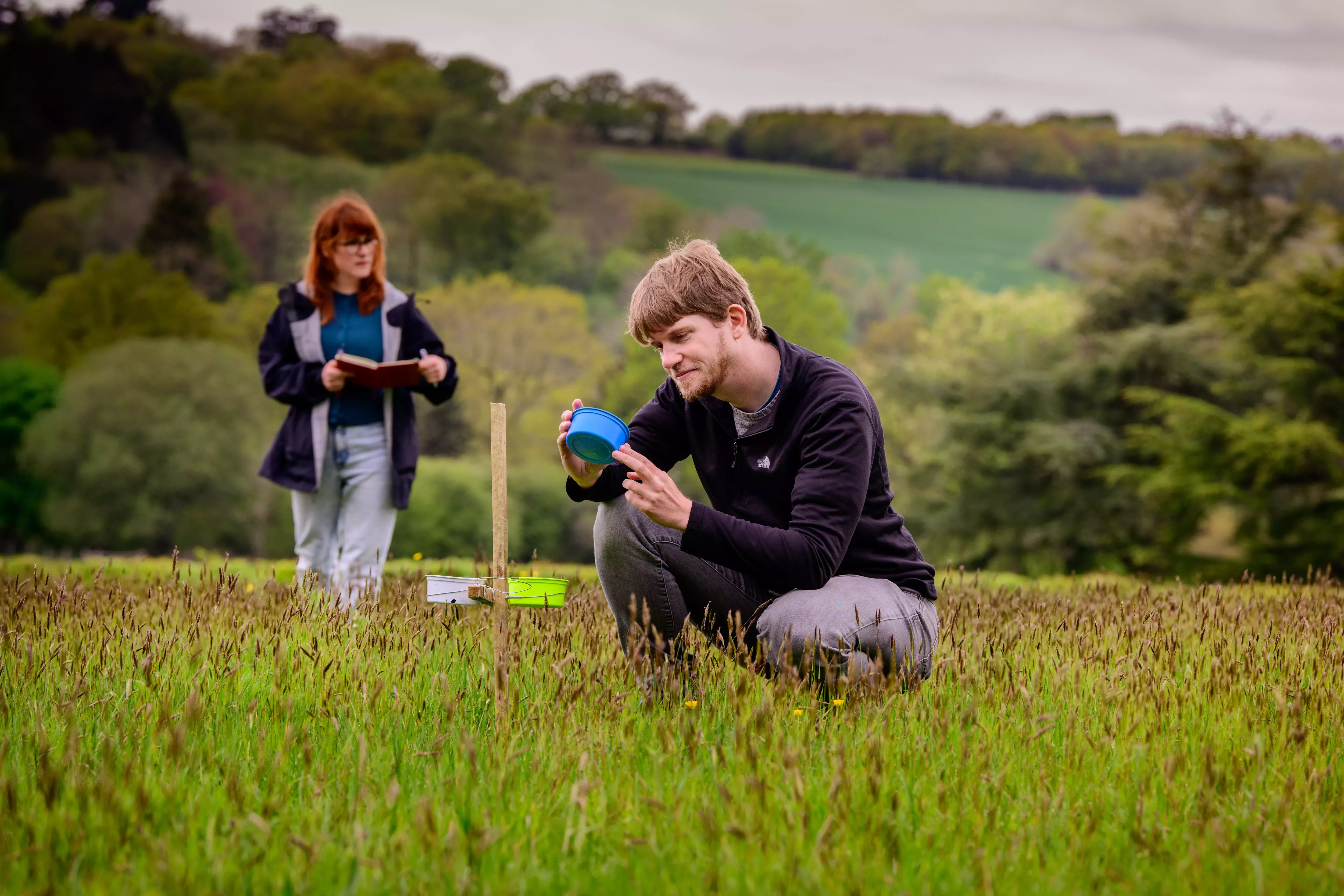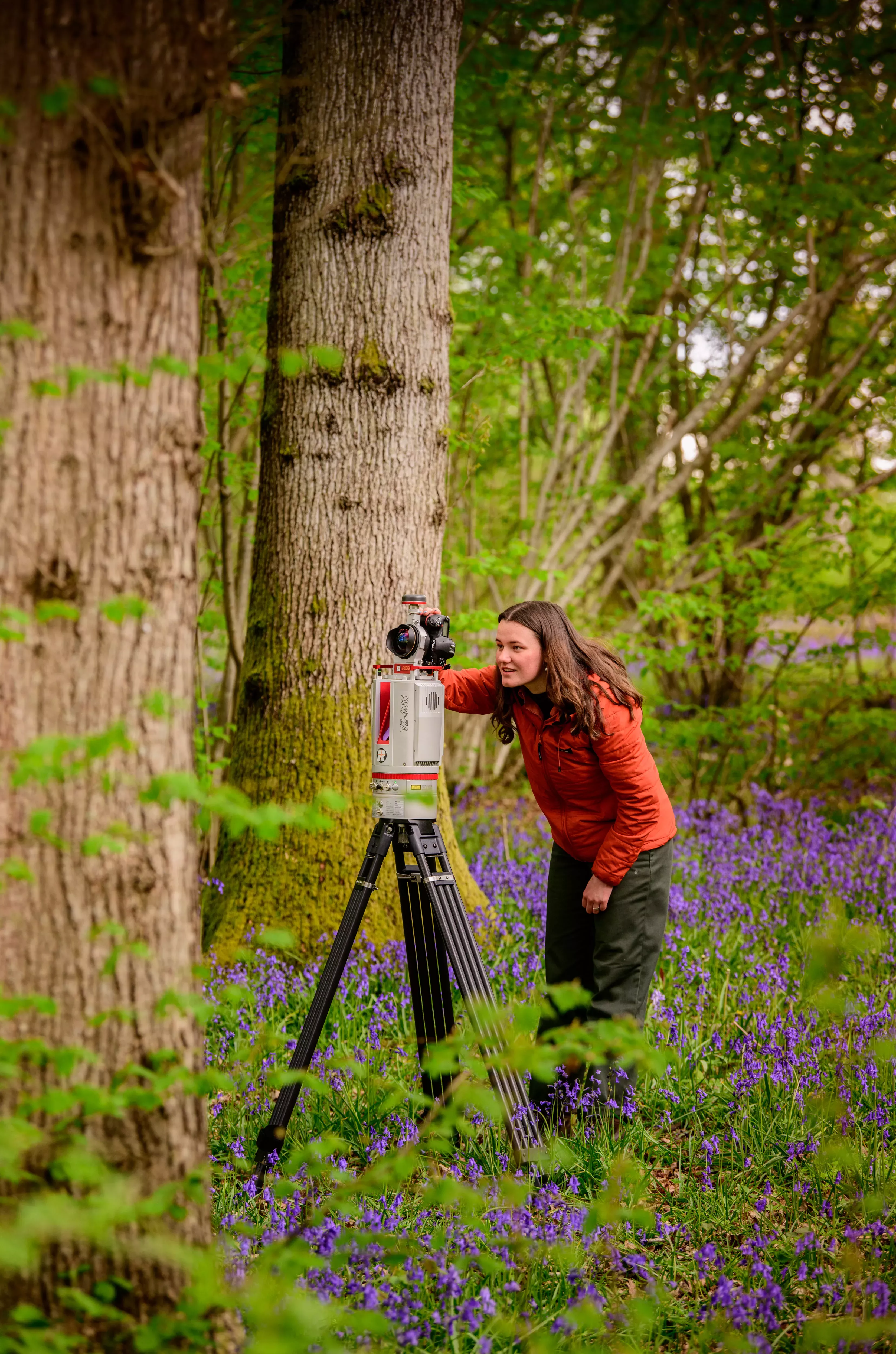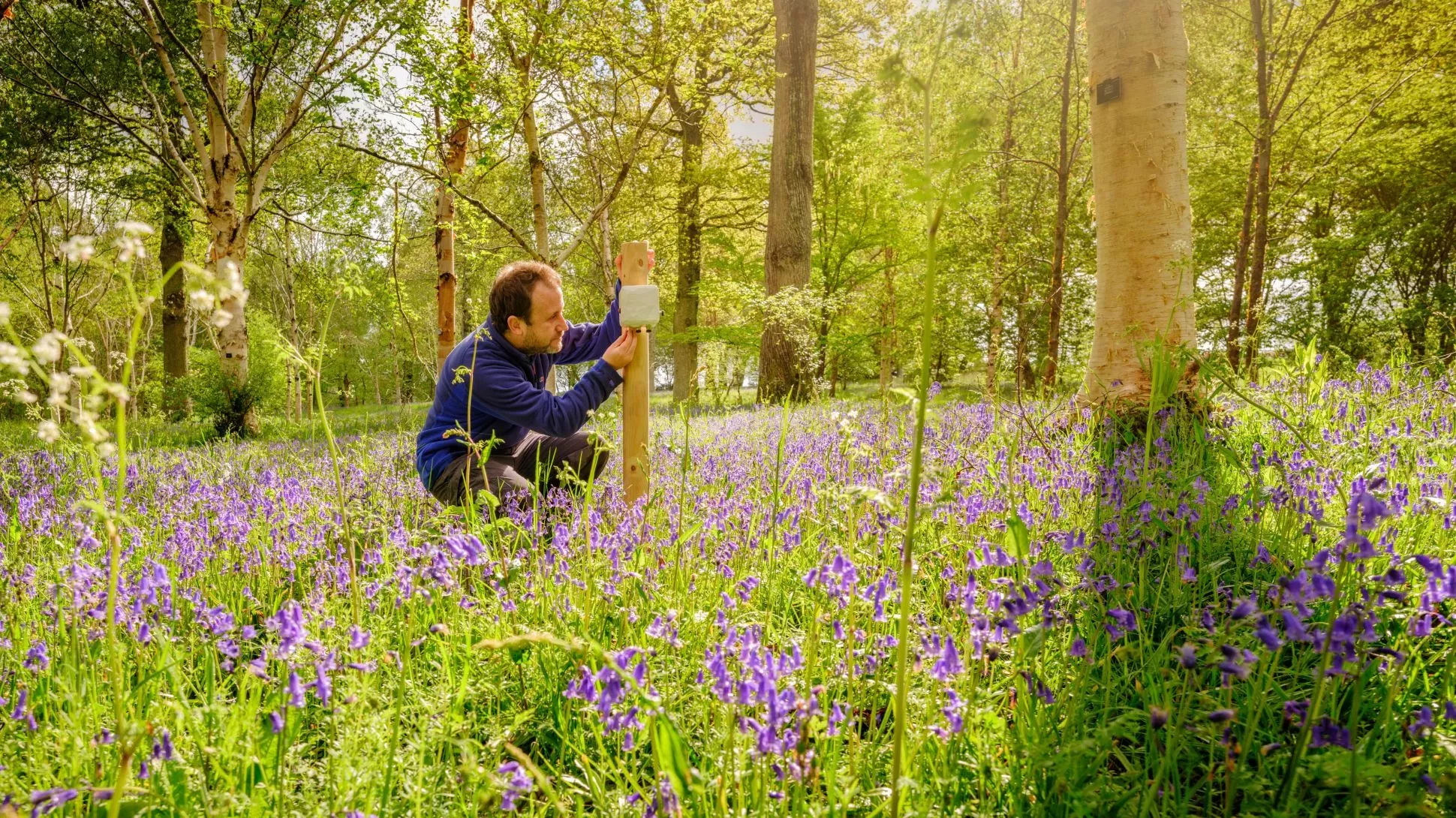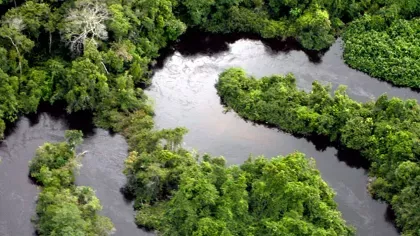29 October 2021
How is Kew providing scientific evidence for UK nature-based solutions?
Find out about our Landscape Ecology Programme that is helping to tackle critical global challenges from climate change to biodiversity loss.

The UK is facing multiple ecological threats to nature: biodiversity loss, climate change and land use change.
These threats are connected and are inextricably linked to our societal structure and economy, with disparities in these often resulting in the destruction of or disconnection from nature.
We need to shift away from the narrative of ‘nature versus humanity’ and towards one where humans can act as ecological stewards of nature, recognising and protecting the many social and ecological benefits that biodiverse, functional landscapes offer.
In essence, we need ‘nature-based solutions’. Nature-based solutions is an umbrella concept for multiple interventions that work with nature to address societal and environmental challenges.
These interventions range from protecting and restoring natural ecosystems to sustainable land management and the creation of new ecosystems.
At the heart of nature-based solutions is biodiversity — the totality of all life on Earth — and engagement with people, especially local communities.
To understand this diversity, including people’s values and voices, nature-based solutions must be grounded in scientific research and collaborative governance.
.jpg.webp?itok=vaQpRTY1)
Our new Landscape Ecology Programme
Our mission at the Royal Botanic Gardens, Kew is to understand and protect plants and fungi for the wellbeing of people and the future of all life on Earth.
We are committed to investing our scientific expertise and building collaborative partnerships to halt biodiversity loss, mitigate and adapt to climate change, and enable life on Earth to thrive.
Our new flagship Landscape Ecology Programme is a prime example of this commitment.
Based at Wakehurst, Kew’s wild botanic garden in Sussex, the programme aims to research, engage with, and share the benefits of UK biodiversity.

Valuing biodiversity across landscapes
The Landscape Ecology Programme will scientifically measure nature’s benefits for people and the environment.
Kew scientists will deliver expert research across four areas: carbon, pollination, hydrology and nature connectedness; all underpinned by biodiversity.
Already, we have seven projects doing active scientific research across the landscape.
Carbon
A multi-year project in partnership with Natural England, Forestry Commission, University of Sussex and the Environment Agency will involve innovative research into carbon storage and sequestration.
Using Wakehurst as a pilot site, Kew scientists will collect high-resolution data from drones, gas flux sensors, soil and fungal samples to help understand the flow of greenhouse gases and storage of carbon across different habitat types.
This data will be collected across space and time, and protocols will be developed to scale research across the UK.
The project will fill vital evidence gaps on carbon flows and sequestration.
Combined with social and governance data, this evidence will help evaluate the benefits and trade-offs linked to nature-based solutions across varied UK landscapes, alongside the opportunities for public-private finance to invest in these solutions over the long term.
Nature connectedness
Kew scientists are also researching ecosystem services such as the role of invertebrates in Wakehurst’s landscape in enhancing biodiversity and improving people’s wellbeing.
In partnership with the University of Sussex, scientists are examining the importance of roadside verges as a comparable habitat for pollinators amidst the loss of 97% of species-rich wildflower meadows across the UK.
Our scientists will also examine the role of invertebrates as a natural pest control in grasslands and neighbouring farmland.

Influencing and engaging diverse stakeholders
In building public and private partnerships, our research will help ground policy and practice, like the 25 Year Environment Plan and Net Zero by 2050 target, in robust scientific evidence.
Alongside influencing national change, the Landscape Ecology Programme will also engage the public with nature and why it matters, enhancing society’s ‘nature connectedness’.
We are collaborating with the Royal Holloway University London to research the psychological and health benefits of being in biodiverse landscapes.
We will also develop a citizen science programme to gather large datasets on biodiversity at Wakehurst and engage and inform local communities.
This is especially important if we are to understand the diversity of nature’s benefits to society and shift the narrative towards one where people are seen as part of, rather than separate to, natural ecosystems.

Wakehurst as a long-term ‘living laboratory’
Located in the heart of the High Weald Area of Outstanding Natural Beauty (AONB), Wakehurst is the ideal location for this new programme that connects science, the landscape and people together.
It is a biodiverse 500-acre site, attracting 415,000 visitors and 17,500 members per year and has long-standing public programmes teams, including education, lifelong learning and community participation programmes.
The landscape is a microcosm of UK habitat types from woodlands managed with minimal intervention and coniferous plantations to wetlands and species-rich grasslands.
Wakehurst is also neighboured by acres of agricultural land, suburban habitats and the Ashdown Forest, representing 3% of UK’s lowland heathlands.
.jpg.webp?itok=2ymjwYK7)
The land has been sustainably managed for centuries, with a host of archival data alongside ecological surveys that can be used to paint a picture of Wakehurst’s biodiversity and land use over time and space.
The social and ecological data collected in the Landscape Ecology Programme will be gathered to form a baseline of biodiversity across Wakehurst, showing how living things interact across the landscape and their benefits to people.
By measuring a baseline, it can be monitored over time.
Not only will this inform land management at Wakehurst, but empower and inform stakeholders such as landowners, business and local authorities across the UK in how to use and enhance nature to solve environmental and social challenges.
Ultimately, the Landscape Ecology Programme aims to showcase the importance of Wakehurst’s landscape as a ‘living laboratory’.
We hope to encourage scientists and research partners to continue using our wild botanic garden to test the effectiveness of nature-based solutions for the future of our people and planet.

Acknowledgements
The Landscape Ecology Programme is generously funded by the following partners: Defra and the Department for Business, Energy & Industrial Strategy, Ground Control, Mount Anvil and Peabody, People’s Postcode Lottery and Sky Zero.
.jpg.webp?itok=aQVtubeJ)


